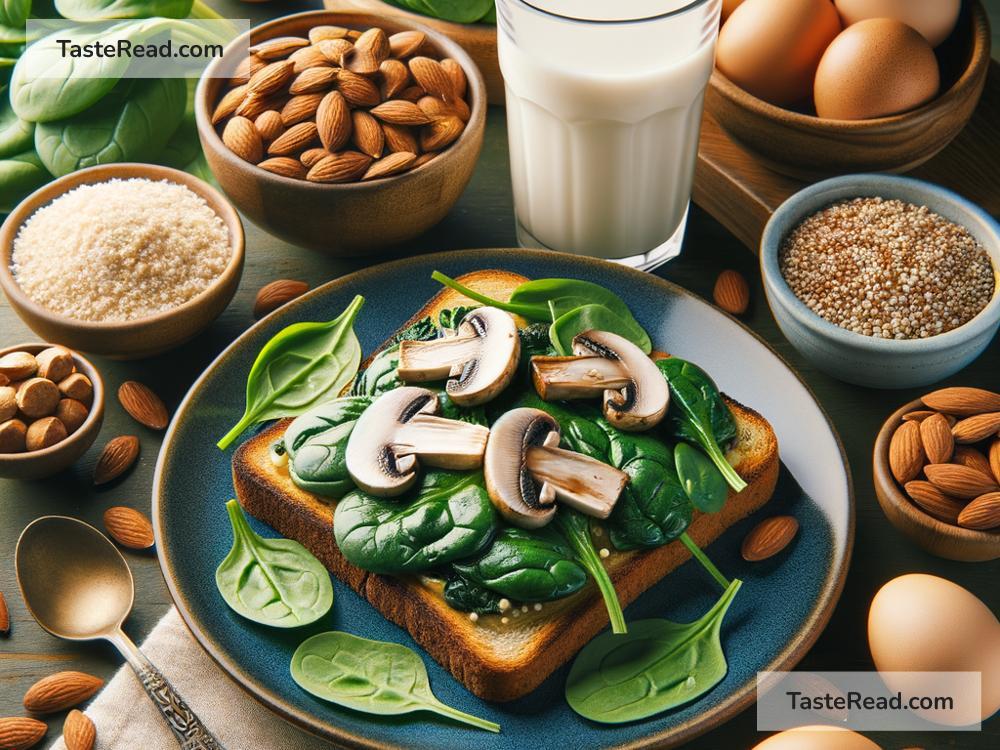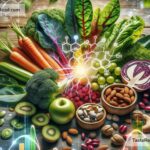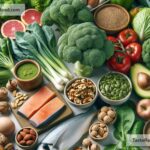The Role of Vitamin B2 in Metabolic Health
When it comes to maintaining good health and energy levels, your key focus might be on eating a balanced diet, staying active, and getting enough sleep. But have you ever considered the role of vitamins in keeping your body functioning effectively? One vitamin that doesn’t get much attention is Vitamin B2, also known as riboflavin. Despite its quiet reputation, Vitamin B2 plays a huge role in metabolic health. This blog will explain everything you need to know about this essential nutrient—and why your body loves it.
What Is Vitamin B2?
Vitamin B2 belongs to the B-vitamin family, which is a group of water-soluble vitamins that help our bodies convert food into energy. Riboflavin, its scientific name, helps break down proteins, fats, and carbohydrates so that your body can use them as fuel. It’s like having a super-efficient energy generator working inside you.
Since Vitamin B2 is water-soluble, your body doesn’t store large amounts of it. This means you need to consume it regularly through your diet to stay healthy. Luckily, it’s found in many common foods.
Why Is Metabolic Health Important?
Before we dive deeper into the role of Vitamin B2, let’s quickly discuss what “metabolic health” means. Metabolism refers to the chemical processes in your body that keep you alive and functioning—things like breathing, circulating blood, regulating body temperature, and converting food into energy. Good metabolic health means all these processes run smoothly, helping you feel energetic, focused, fit, and strong.
When your metabolism isn’t working properly, it can lead to problems like fatigue, weight gain, high blood sugar, and even chronic diseases like heart disease and diabetes. So supporting your metabolism is essential to living a healthy life—and that’s where Vitamin B2 comes in.
How Does Vitamin B2 Help Metabolic Health?
Vitamin B2 supports several important metabolic processes. Here are some of its key roles:
1. Converting Food into Energy
One of the most important jobs of Vitamin B2 is helping your body convert the food you eat into energy. Riboflavin is critical to the function of two coenzymes—FMN (flavin mononucleotide) and FAD (flavin adenine dinucleotide). These coenzymes act as helpers in chemical reactions that release energy from proteins, fats, and carbohydrates. Simply put, Vitamin B2 ensures that your food isn’t just fuel on your plate—it becomes usable energy for your body and mind.
2. Supporting Healthy Cells
Your body is made up of trillions of cells, and every one of them relies on Vitamin B2 to stay healthy. Riboflavin helps fight oxidative stress, which occurs when harmful molecules called free radicals damage your cells. Free radicals are like little troublemakers in your body, but riboflavin acts as a defender, keeping your cells strong and functional.
Healthy cells mean better overall health, faster recovery from illnesses and injuries, and reduced risk of chronic conditions.
3. Helping Other B Vitamins Work
Vitamin B2 plays nicely with its family members, especially Vitamin B6 and Vitamin B9 (folate). It helps activate these vitamins so they can perform their own critical functions, like making red blood cells or supporting brain health.
4. Maintaining a Healthy Thyroid
Your thyroid is a small gland in your neck that produces hormones to regulate your metabolism. Vitamin B2 is important for thyroid function and helps ensure these hormones are in balance. If your thyroid isn’t working properly, you could experience issues like weight changes, fatigue, or mood swings.
5. Managing Iron Levels
Vitamin B2 is involved in the metabolism of iron, a mineral that helps your blood carry oxygen. Without enough riboflavin, your body might struggle to use iron efficiently, leading to issues like anemia, fatigue, or poor muscle function.
Foods Rich in Vitamin B2
Now that we know how important Vitamin B2 is, it’s worth asking: How can we get enough of it? Fortunately, there are many foods packed with riboflavin. Some of the best sources include:
- Dairy products like milk, yogurt, and cheese
- Eggs
- Lean meats, especially beef and chicken liver
- Fish like salmon and mackerel
- Leafy green vegetables like spinach and kale
- Whole grains like oats and quinoa
- Nuts, particularly almonds
- Fortified cereals
By including these foods in your diet, you can ensure your body gets the Vitamin B2 it needs to thrive.
How Much Vitamin B2 Do You Need?
The recommended daily intake of Vitamin B2 varies based on age, gender, and lifestyle. Adults need about 1.1 to 1.3 milligrams per day, while pregnant or breastfeeding women may require slightly more. If you’re eating a balanced diet, you’re likely getting enough riboflavin without having to worry about supplements.
Signs of Vitamin B2 Deficiency
Although riboflavin deficiency is rare in healthy adults, it can happen if you don’t eat enough nutritious foods over time. Symptoms of deficiency include cracked lips, soreness around the mouth, dry skin, and fatigue. Severe deficiency can lead to more serious issues like anemia or migraines. If you suspect your diet might be lacking, consult a healthcare provider for advice.
Conclusion
Vitamin B2 may not be the most famous nutrient, but it’s one of the quiet heroes that keeps your body running smoothly. From converting food into energy to protecting cells and supporting your thyroid, riboflavin plays a vital role in your metabolic health. By eating a variety of riboflavin-rich foods each day, you can make sure your body has everything it needs to feel energized, focused, and strong.
Remember: small steps like eating whole grains, leafy greens, and dairy can make a big difference for your health. So the next time you plan your meals, give a little love to Vitamin B2—it’s working hard to keep you healthy!


